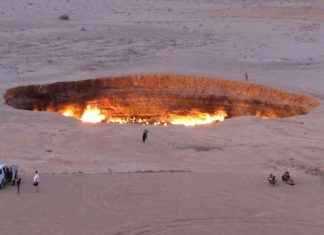The parasite Henneguya salminicola, like all the other animals, should breathe to live. And yet the parasite Henneguya salminicola does not know and lives the same. Literally: a team of scientists from the Tel Aviv University , Israel, and other institutes of research, in fact, has just found out that this bizarre and tiny parasite that survives and reproduces by infecting the muscle tissue of fish and worms underwater, does not possess a mitochondrial genome and, therefore, is not able to turn oxygen into energy. That is, basically, not breathing. It is the only animal known, at the time, equipped with the features of this type. The authors of the research give an account on the pages of the Proceedings of the National Academy of Sciences.
H. salmicola is a creature strange. It is a but see text, distantly related to corals, jellyfish and anemones, that has slowly evolved, losing the majority of the genome of the original of his cousins: “I do Not share the tissue, the nerve cells, the muscles. None of this,” explained Dorothée Huchon , a biologist and evolutionary of the university of israeli and co-author of the research. “Today we have discovered that among the traits that he has lost, there is also the ability to” breathe”. It is therefore natural to ask how and why the animal has lost this trait: one hypothesis is that this “downgrade genetic”, as they called it scientists, to give the advantage to reproduce in a very short time, without “wasting time” to breathe.
The oddities do not end here. In fact, it seems that H. salminicola is evolving in a direction which is bizarre: its spores are multicellular organisms, similar to sperm cells with two tails and a pair of “eyes” ovals which are used to attach to the host animal, while the adult organism resembles much more to a being unicellular. “In general, animals are multicellular organisms with many genes that become gradually more and more complex,” explains Huchon. “In this case we are dealing with something completely different: H. salminicola is evolving to become a single-celled organism”. But if not breathing, how do you get the energy you need to survive? On this, the researchers are not yet sure of this: the hypothesis is more likely is that the animal possesses proteins capable of importing energy is already being “worked” – the so-called Atp, or adenosine triphosphate – through directly from the host organism. A parasite tout court, in other words. That do not take even the trouble of breathing.
“The Republic will fight always in defense of the freedom of information, to its readers and to all those who have at heart the principles of democracy and civil coexistence”
Carlo Verdelli SUBSCRIBERS TO REPUBLIC © Reproduction reserved Today on The great frost of coronavirus on tourism. “Erased up to 40% of bookings” If the fear becomes a disease Together when it’s convenient Coronavirus, the iron arm of the losers between the government and the Regions Trump inflames India
the Republic






